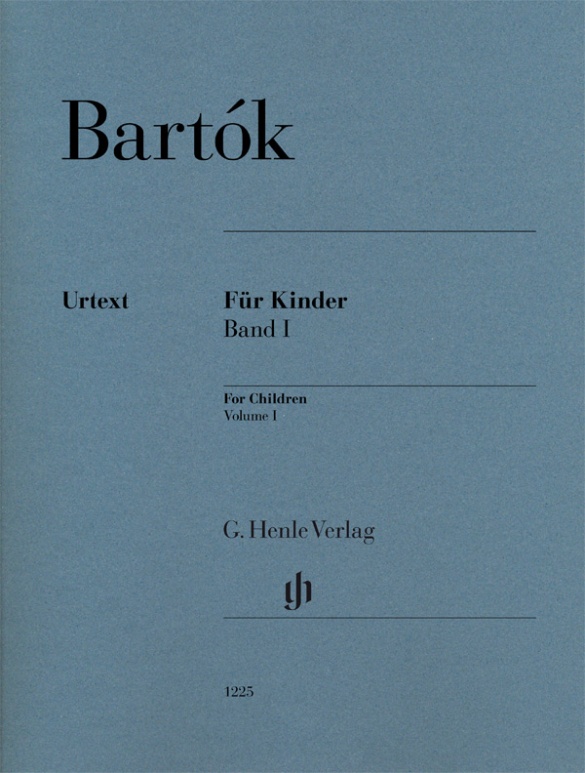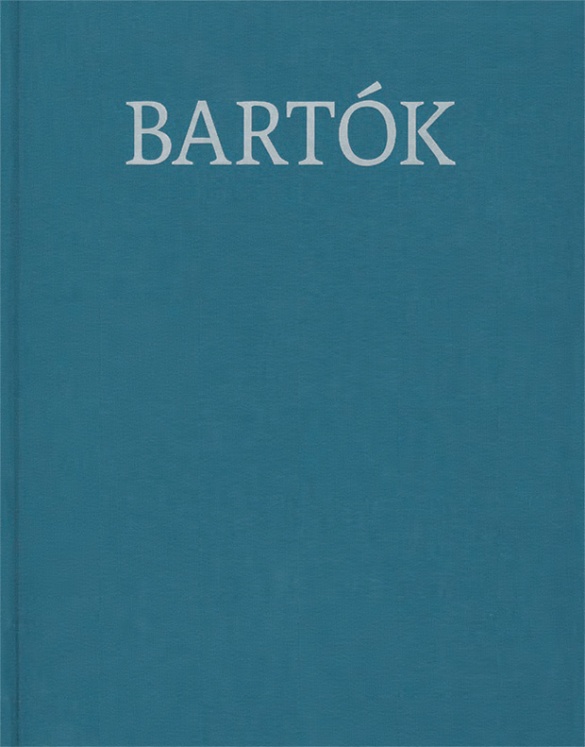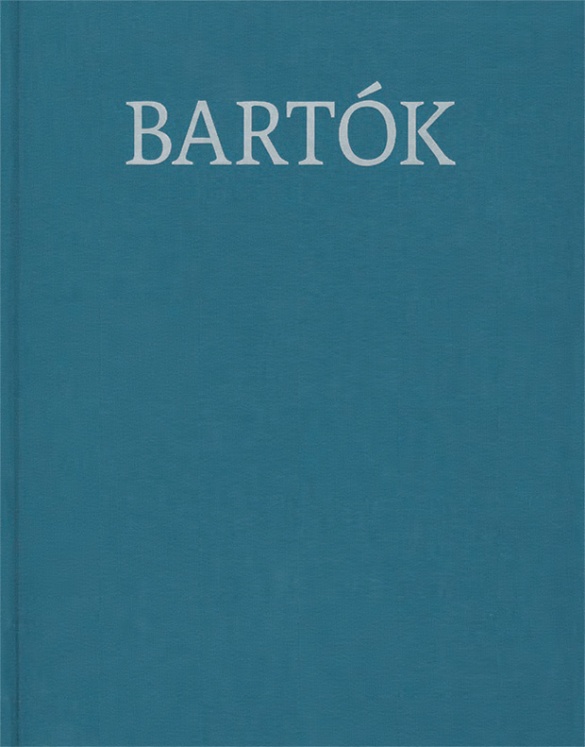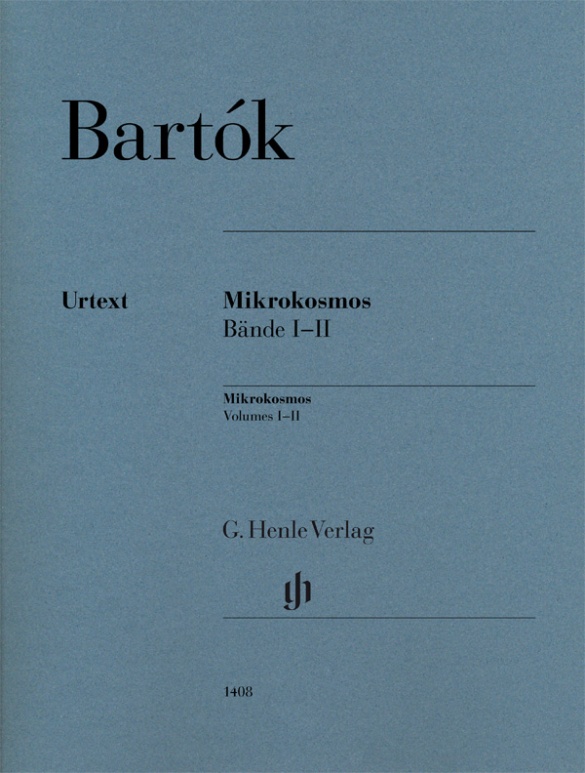

Béla Bartók
Mikrokosmos, Volumes I-II
Bartók’s Mikrokosmos is one of the milestones in the pedagogical piano repertoire – and yet it is also far more than a “classical” piano primer. These 153 piano pieces, organised in ascending order of difficulty, engage not only with technical aspects of piano playing, but also with the fundamentals of composition – from “Ostinato”, “Free variations” and “Imitation and inversion” concerning compositional technique, to programmatic ideas as in “From the diary of a fly” or the famous “Six dances in Bulgarian rhythm” that form the passionate close of this unique work. This Henle Urtext Edition is based on the corresponding volume of the Bartók Complete Edition that is currently in preparation, and also includes specific practical comments and tips concerning Bartók’s own performances. Furthermore, the six volumes of the first edition, which first appeared in 1940, are here gathered together in three practical double volumes that offer both beginners and advanced pianists a perfect introduction to this work.
Content/Details
About the Composer
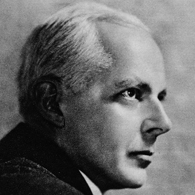
Béla Bartók
This composer, who numbers among the most important musical figures in the first half of the twentieth century, is known principally for his research into Hungarian folk music, the elements of which he incorporated into his style. His broad oeuvre includes numerous works for orchestra, piano, and chamber ensembles, as well as choral music; songs with piano accompaniment; and an opera.
| 1881 | Born in Nagyszentmiklós on March 25. First piano instruction from his mother. |
| 1893–ca. 1896 | Piano studies with László Erkel in Pressburg (Bratislava). |
| 1899–1903 | Studies piano and composition at the Budapest Academy of Music. Symphonic poem “Kossuth” in 1903. |
| from 1905 | Together with Zóltan Kodály he begins scientific field research into Hungarian folk music and thereby refutes conventional notions. He becomes acquainted with the music of Debussy. |
| 1905–07 | Suite No. 2, Op. 4, for small orchestra. |
| 1907–34 | Professor of piano in Budapest. |
| 1908–09 | “For Children,” 85 transcriptions of folk songs for piano, later only 79. |
| 1915–17 | String Quartet No. 2, Op. 17, with percussive playing techniques. |
| 1917 | Premiere of his ballet “The Wooden Prince.” |
| 1918 | Premiere of “Bluebeard’s Castle,” Op. 11 (composed 1911), partially based on the sounds of French music. |
| 1920 | Improvisations on Hungarian Peasant Songs, Op. 20. |
| 1926 | Performance of the pantomime “The Miraculous Mandarin.” Piano cycle “Out of Doors.” |
| 1926–39 | “Mikrokosmos” for piano (six volumes). |
| from 1934 | Editor of the complete edition of Hungarian folk music. |
| 1936 | Music for Strings, Percussion and Celesta as avant-garde work. |
| 1937–38 | Concerto (No. 2) for violin and orchestra. |
| 1940 | Emigrates to the United States. |
| 1945 | Piano Concerto No. 3; his concerto for viola remains unfinished. Death in New York on September 26. |
Product Safety Informations (GPSR)

G. Henle Verlag
Here you can find the information about the manufacturer of the product.G. Henle Verlag e.K.
Forstenrieder Allee 122
81476 München
Germany
info@henle.de
www.henle.com
As one would expect from Henle Urtext, the editing, engraving and presentation are exemplary, with crystal clear music engraving on cream paper. Indeed, this is a beautiful score, and will be eagerly welcomed by lovers of Henle editions!
Pianodao, 2018Die auf der "Kritische(n) Gesamtausgabe Béla Bartók" der Ungarischen Akademie der Wissenschaften Budapest basierende Henle-Ausgabe in drei Bänden eignet sich vorzüglich zum Studium.
Piano News, 2018Die bekannte Abfolge der Stücke bleibt erhalten und der gut lesbare, übersichtliche Notensatz richtet sich nach der leicht korrigierten englischen Erstausgabe von 1940. ... Ein weiterer Schatz findet sich in jedem Band zu Beginn, wo jeweils eine Ablichtung der originalen Handschrift des Komponisten zu bewundern ist. ... Eine absolut empfehlenswerte Urtext-Edition des Mikrokosmos.
Üben und Musizieren, 2018recommendations
autogenerated_cross_selling
Further editions of this title


